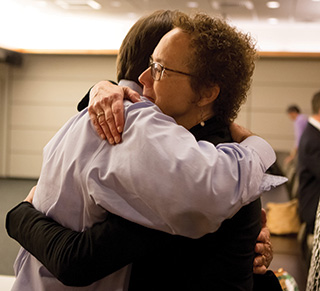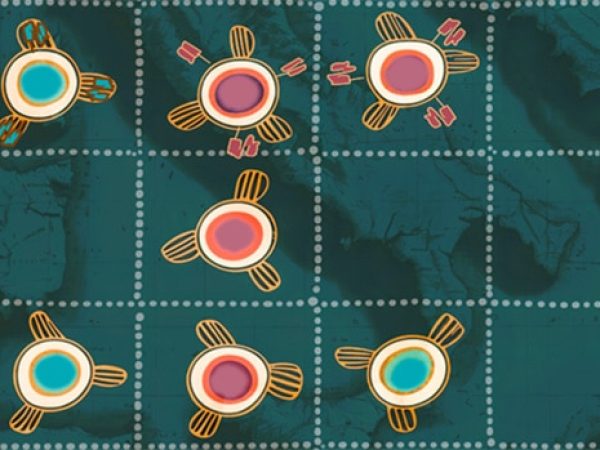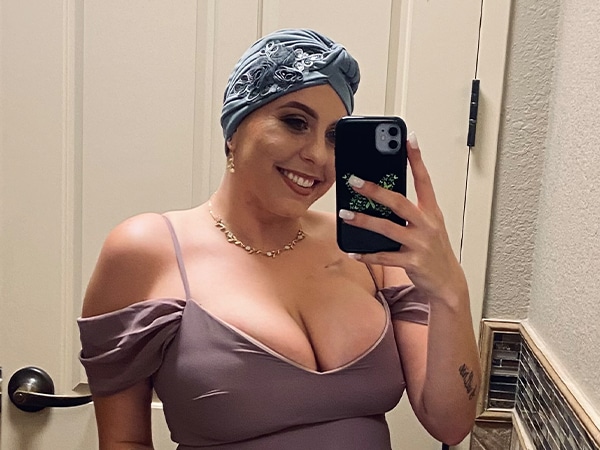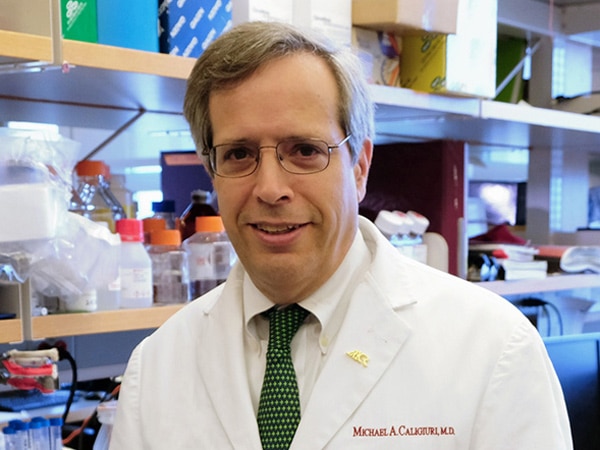Jack Whelan: Invested in Cancer Research and Clinical Trials
Diagnosed with a rare “not-yet-curable” blood cancer, Jack Whelan turned to clinical trials and forward-looking science as his best treatment options.

Soon after his 58th birthday, Jack Whelan, of Andover, Mass., was diagnosed with a rare, “not-yet curable” type of non-Hodgkin lymphoma.
At first, Jack wrote off the feelings of diminished strength and the growing difficulty of his daily walks from the train station to his office. But after several nosebleeds, the research analyst, now advocate, went to his primary care doctor for a physical.
“I [had been] healthy, fit and active,” Jack said. “When I started having symptoms, I thought it was a sign that I was getting older.” The routine tests at his physical, however, found that Jack had high levels of protein in his blood. His physician sent him to see a specialist at his local hospital in suburban Boston.

That’s where – after a slew of tests including a bone marrow biopsy – Jack was diagnosed with Waldenstrom macroglobulinemia, also known as a lymphoplasmacytic lymphoma. The rare blood cancer is diagnosed in some 1,500 people a year in the U.S.
“I honestly wasn’t scared until I received the actual diagnosis,” Jack explained.
Along with his wife and three daughters, Jack began to research the disease on the internet.
“We were worried that it was incurable and had a poor survival rate,” Jack recalled. “But I was always confident that we’d find a way to extend my life.”
To do so, Jack and his family of supporters turned to clinical trials at the Dana-Farber Cancer Institute in Boston.
Jack has participated in six different clinical trials – including an ongoing study – which he credits with giving him access to world-class care with novel medicines.

The latest trial is investigating a targeted therapy of carfilzomib, cytoxan, and dexamethasone. The initial response was very good, and Jack continues to undergo this combination therapy by way of twice-weekly infusions.
“Some people think that clinical trials are a last resort. I am a big proponent of clinical trials, with what we now know about genetics and genomics. The novel agents in clinical trials can be safer and more effective than conventional chemotherapy,” Jack said. “Cancer is a nasty, nasty thing to have. You can never turn your back on it. I am a seven-year survivor of a rare, not-yet-curable cancer. Forward-looking science, what is available in clinical trials, was the best choice for me.”
You can read more about Jack’s journey in a Cancer Today article “Betting on Science“ and an update in the AACR Cancer Progress Report 2014.
The AACR was saddened to learn that Jack died since this article was published. We are deeply grateful to him for sharing his cancer experience with the AACR. We offer our heartfelt condolences to his family and friends.




